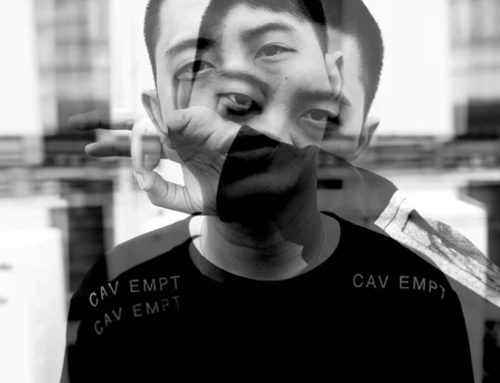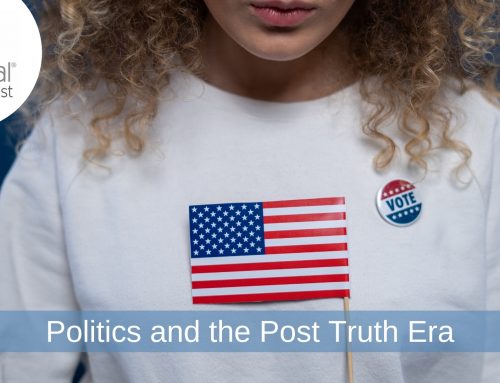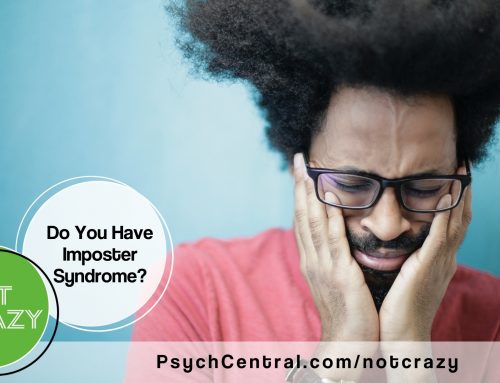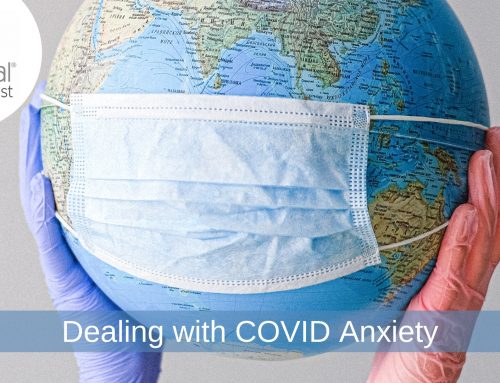Does law enforcement need to evolve to meet the needs of our changing society? Absolutely, according to our guest, mental health advocate Gabriel Nathan. Join us for a deep look into police culture and how it damages the community as well as the officers themselves. Click on the player below to listen now!
SUBSCRIBE & REVIEW
Guest information for ‘Police Mental Health’ Podcast Episode

Gabriel Nathan is an author, editor, actor, and a mental health and suicide awareness advocate. He is Editor in Chief of OC87 Recovery Diaries, an online publication that features stories of mental health, empowerment, and change. Recently, OC87 Recovery Diaries produced a unique film series called “Beneath the Vest: First Responder Mental Health” that features candid and moving recovery stories from firefighters, EMS personnel, law enforcement, dispatchers, and a crisis intervention specialist instructor. These films are being used by first responder agencies across the U. S. and by the Royal Canadian Mounted Police.
Independent of his work at OC87 Recovery Diaries, Gabe raises mental health awareness, generates conversations around suicide and its prevention, and spreads a message of hope with his 1963 Volkswagen Beetle, Herbie the Love Bug replica that bears the number for the National Suicide Prevention Lifeline on its rear window. Gabriel lives in a suburb of Philadelphia with his wife, twins, a Basset hound named Tennessee, a long-haired German Shepherd named Sadie, and his Herbie. You can view Gabriel’s TEDx Talk on his approach to suicide awareness here. Gabriel and Herbie teamed up to
produce a documentary film about their suicide awareness mission; you can view the entire film and learn more information about Gabriel, Herbie, and suicide awareness here. You can also follow Gabriel and Herbie on IG @lovebugtrumpshate.
Computer Generated Transcript for ‘Police Mental Health’ Episode
Editor’s Note: Please be mindful that this transcript has been computer generated and therefore may contain inaccuracies and grammar errors. Thank you.
Announcer: You’re listening to the Psych Central Podcast, where guest experts in the field of psychology and mental health share thought-provoking information using plain, everyday language. Here’s your host, Gabe Howard.
Gabe Howard: Hello, everyone, and welcome to this week’s episode of The Psych Central Podcast, I’m your host, Gabe Howard, and calling into the show today we have Gabriel Nathan. Gabriel is the executive director of OC87 Recovery Diaries, and they produced a film series called Beneath the Vest: First Responder Mental Health. And it features police officers, EMS personnel, dispatchers, fire service, all individuals talking about trauma and complex PTSD. Gabriel, welcome to the show.
Gabriel Nathan: Hi, and thanks for having me. It’s great to be here.
Gabe Howard: Gabriel, today we’re going to be talking about law enforcement reform, and I know that you have a lot of thoughts on the subject.
Gabriel Nathan: First of all, before I really get into the weeds of the question, what I have found is whenever you are taking a position that is critical in any way of law enforcement or attempts to raise questions even about the way law enforcement agencies do anything, it is extremely important to establish your own bona fides. Because anybody who steps up to challenge law enforcement is immediately regarded with suspicion, paranoia, is dismissed as, quote, libtard, troll, anti-cop antifa, whatever. I’m none of those things. I am someone who, for the last 20 years has been an advocate for slain police officers and their families through editorials, commentaries in newspapers. I have attended over 10 police funerals in Philadelphia down to Maryland. I have done a lot of advocacy work for law enforcement in regard to mental health of first responders. I’m very well aware of the suicide rate for police officers. I am someone who knows law enforcement culture. I am someone who has a respect for police officers and what they do. And so I just want people to know that I am doing this from a place of love and concern and from a position of someone who believes ardently that there absolutely needs to be change and radical reimagining of law enforcement across the board.
Gabe Howard: Thank you, Gabriel, for saying all that, and I agree with many of your points, and I want to point out that you were a recent guest on another podcast that I have the pleasure of hosting, Not Crazy. And you had so much to say, well, it spilled over into a second podcast. I strongly encourage all of our listeners to head over to PsychCentral.com/NotCrazy and check out that interview. All right, Gabriel, to get started, you believe that in many ways we’re recruiting the wrong people and that a lot of our problems start early, even before police officers get into the academy.
Gabriel Nathan: Yes, look at the people who go into law enforcement. OK, a lot of people decide they want to be cops when they’re children. They’re watching shows like Cops, they’re watching shows like
Law & Order. They’re watching Lethal Weapon movies. Even as far as Hill Street Blues. I would say that this problem started with Hill Street Blues, the opening credits of Hill Street Blues. I love the music. And then the garage door opens and the Plymouth Fury is in the garage with the red lights bursting out of the garage. It’s exciting, right? So who is drawn to that profession? Action junkies. It’s people who want that adrenaline rush. And then we put them in situations where they’re in a constant state of hyper arousal. They’re always looking around. They’re doing the head swivel. You know, is someone going to hurt me, is someone going to shoot me? In a twenty five year career, most police officers never fire their weapon, never fire their weapon once. Many, many police officers never pull their weapon. And yet that’s the kind of human being that is drawn to that profession. And I have had people tell me, well, we pull in people who are really resilient. Well, is that what you’re doing? Or are you pulling in people who are craving action and are not necessarily maybe the most empathic people? Because a law enforcement agency can’t function if a police officer responds to a call and then starts falling apart emotionally because they can’t process what they saw. So maybe law enforcement is either consciously or subconsciously trying to pull people in who maybe don’t have that kind of empathic response. That’s not who I want riding around in a patrol car with a firearm and the power of arrest.
Gabe Howard: People who are attracted to law enforcement are more often than not white men. Do you think targeting women and people of color to become police officers and diversifying the police force, would that help?
Gabriel Nathan: It’s a start, but there’s even problems with that. There are women in law enforcement and there are minorities in law enforcement. But what I hear about individuals who identify as female or who are minorities, it’s that they have to work twice as hard and be twice as aggressive on the street so that they can prove that they belong in that culture, that they can prove themselves to their FTO’s. That’s Field Training Officer, which, by the way, Derek Chauvin, who killed George Floyd, he was an FTO.
Gabe Howard: Oh, I did not realize that.
Gabriel Nathan: Yeah. To prove to their colleagues and the veterans on the force that they can be there and that black officers say that they are even tougher on black members of their community so they can show I’m really blue, I’m really with you. So there’s all of that kind of bulls**t that is going on in law enforcement culture, even when you’re bringing on minorities. Even when you have black commanders, there are still acts of racism, acts of racism perpetrated against officers, not just the public. Right. So this is still happening. Yes, law enforcement has a reputation of being traditionally a white, Catholic, boys’ club. That is changing, but it is still changing very slowly. Police departments are still not representative of the racial and ethnic makeup of most of their communities. We are still living in a situation where police officers in a lot of places can live outside of the community where they police. So you have law enforcement officers policing really impoverished areas, but they’re living in nicer suburbs. So they get to go home. They don’t really have an investment in their community. They don’t really know the ins and outs of their community. Over and over again, they see the criminal element of the community, but they don’t interact with the law abiding citizens. So I find that incredibly problematic.
Gabe Howard: Gabriel, we’re hearing a lot about defund the police. Can you talk about what that means? Because I believe a lot of people believe this just means the police are going to go away and it’s going to be the Wild West.
Gabriel Nathan: It’s never like there is not someone available, right? And that’s what everyone who’s freaking out about all the stuff on the police thing and putting these absurd commercials where there’s a phone ringing, ringing, ringing incessantly. Yes, 911. What’s your emergency? We’re sorry. Due to all the liberals who want to defund the police, there’s no one here to respond to your. Horses**t. That’s not reality. And it’s not reality now, and it won’t be reality either if we radically reimagine law enforcement. Nobody out there in the Black Lives Matter movement or in any advocacy movement wants someone to get hurt because help is not available for them.
Gabe Howard: Gabriel, I want to pivot really hard right now and talk about the mental health of the police officers. Society, we have been told, since the beginning, that policing is a dangerous job. It’s a job filled with worry and trauma and stress. So it would occur to me, or I would think, that mental health training for police officers to address their own mental health would start at the academy. Is this the case?
Gabriel Nathan: The majority of training at the academy, they’re focused on learning laws and municipal codes, they’re focused on going to the gun range. They’re doing EVOC, which is Emergency Vehicle Operator Course training. That’s really what it’s about. It’s about self-defense and watching your six and watching all these videos over and over and over again of police officers getting killed during traffic stops, really scaring the bejesus out of you. OK, that’s what academy training is like. They don’t really address at all the trauma that police officers are going to experience. They don’t address the issue of police suicide. They don’t address all of that stuff. And they also don’t really address deescalating situations. It’s all about control. How do you control a suspect? How do you take control of a situation? How do you take command of a scene? The police academy curriculum is very, very full. And we know in Germany it takes three years to become a police officer. In other places, it takes two years or a year and a half. My police academy curriculum, it was full time, and it was nine months. But nowhere in that nine months curriculum was there room for crisis intervention, de-escalation, signs and symptoms of mental illness, all that kind of stuff. That’s all taught later.
Gabe Howard: I just want to point out that every state is different, and in many municipalities it takes longer to become a hairstylist than it does to become a police officer.
Gabriel Nathan: Correct, yes.
Gabe Howard: You said at the academy level there’s not very much mental health training, is that because there’s so much more going on?
Gabriel Nathan: It’s that there’s so much going on, but I also think there is, there’s a problem. There’s a disconnect, I think, between the governing bodies who create these police academy curricula and the realities of what’s actually happening on the street. So much of police officers’ time is spent dealing with mental health calls and psychiatric emergencies. If police officers all over the nation are saying this is
what we are spending so much of our time doing, that’s changing. But the academy curriculum is staying the same. They are not recognizing that, wow, we really need to refocus and reshift the majority of what we’re spending our time teaching these officers. We need to be more responsive. Unfortunately, police culture, in my experience, like the military, like religion, and I really do look at policing as a religion. Policing has deep Catholic roots. It is one of those institutions that changes very, very slowly. Like in the Catholic Church, when you have priests that act malevolently, you hide them. Sometimes in police departments, in a large police department, you move a problem officer to a different precinct or to a different duty. It’s the same kind of thing. They’re both steeped in rituals. And so unfortunately, when you have a culture that is so closed and is so insular and is so paranoid about any attempts to change it, they’re going to be very, very resistant to evolution. And when you have a society that is evolving and that is changing, the police need to change with that. And they ain’t about doing that, and particularly the governing bodies that create academy curricula, that changes very, very, very slowly.
Gabe Howard: Now, when you say that the police culture has these traits, they’re very insular, they’re protected from outside criticism, why do you think that is?
Gabriel Nathan: So the first and again, I’m just going to say this is my personal opinion based on things that I know and I speak from my own experience and blah, blah, blah. OK, so that aside, here is why I believe that law enforcement is resistant to change and resistant to outside influences. This is a classic us versus them situation. Any time you criticize a police officer or any time you try to raise a question about things, the response is you don’t know what it’s like. You don’t know what it’s like to walk in my shoes. You don’t know what it’s like to be on a dark road at 3:00 a.m. behind a car with tinted windows and backup is 20 minutes. I’ve heard this a lot from cops and they’re right. I don’t know what that’s like and I can’t know what that’s like. Nobody can know what it’s like to be me either. We can have empathy and we can try to understand, but we don’t know what it’s like to be a police officer. OK, so that’s just a fact. That doesn’t mean that we have no right to question and that we have no right to say do we think this could be done differently or perhaps done better?
Gabriel Nathan: You hear about the blue wall all the time. So the blue wall is a very symbolic metaphor. It is really meant to close ranks and we protect our own. You’re not us and you don’t understand. It’s not really the police against the criminals. It’s the police against the civilians. Anybody who does not wear blue is the enemy because we don’t get it. That is why there is resistance to civilian review boards of line of duty shootings. That is why there is resistance to any politician who raises any issue. They’re anti blue. You’re against us. If you’re not in lockstep with the FOP and all of that stuff, you’re the enemy. And I have seen police officers turn against me. They don’t care about the twenty years of advocacy work that I’ve done. They don’t care about the mental health videos that I produced, the voice that I’ve given to law enforcement officers who are struggling. They don’t give a damn because the second you fall out of line, you’re history.
Gabe Howard: I’ve been really surprised to learn that the suicide rate among law enforcement officers is just scary high. I recently had the opportunity to emcee an event that had a police captain. He’s been a police officer for over 25 years, and he does these trainings talking about how we provide zero mental health care for police officers. And one of the things that he points out is that we’re constantly training
them how to be in a high level shootout, like a war zone in their own city, that the majority of police officers will never be in. A majority of police officers never even pull their guns. But we spend so much time training them for that. But the reality is pretty much every police officer will at some point have to inform somebody that their loved one has died. They respond to traffic accidents and, well, accidents in general all the time. They have seen passed away people in the wild. And we give them nothing for that. There’s no mental health follow up. We don’t ask them if they’re OK. When they go home at the end of the day, after seeing a dead child who died in a car accident, they look at their own children. They look at their own families. They look at their own spouses. One of your big advocacy points is getting mental health care for law enforcement. Do you believe that police officers are starting to be more receptive to the idea that they themselves need mental health care?
Gabriel Nathan: That I believe we are making progress in, and I feel like there is an older generation of law enforcement officers who just need to retire so we can have more evolved and emotionally aware people take over. This older generation of police officers is the suck it up, buttercup. Be a man. You’re fine. We all have to see this s**t. This is part of the job. Whatever. There is a newer generation of more emotionally intelligent police officers coming up through the ranks who have a better understanding of, oh, my God, like, yes, we do have to see this kind of stuff, but we also have to deal with it. We also have to emotionally process it. We don’t just swallow it and then go to the bar and drink with our buddies and try to wash it all away with alcohol so we can get up and do it the next morning. We need to be able to talk about this stuff. And there are crisis intervention, stress management teams and there are trauma debriefings. And I’m not trying to criticize what you just said, but it’s not just dead children. They see all kinds of stuff that is unimaginable.
Gabriel Nathan: And yes, nobody tells them about how that’s going to impact them. Nobody tells them, hey, by the way, did you know that simply by having constant access to lethal means on your hip twenty four hours a day that you are at extreme risk for taking your own life? Nobody talks about that kind of stuff. When I hear people say cops are there to protect and serve, I laugh because they can’t even protect themselves. They’re not even given the tools to help themselves. Yet we live in this fantasy world where they’re here to help and protect us. They’re all falling apart and where are the resources to help them? And so that really burns me when we have these hiring practices that are ineffective and then they’re not given the tools to emotionally cope with the things that they see. We know that there’s rampant alcoholism and drug use. We know that they kill themselves more than they are killed or die in accidents in the last three years that there are stats. So we know all these things. And yet we live in this fantasy world where, hey, we’re fine. Don’t you criticize us. Don’t you come at us. Your whole profession is rife with problems, really systemic issues.
Gabe Howard: We’ll be right back after we hear from our sponsors.
Sponsor Message: This episode is sponsored by BetterHelp.com. Secure, convenient, and affordable online counseling. Our counselors are licensed, accredited professionals. Anything you share is confidential. Schedule secure video or phone sessions, plus chat and text with your therapist whenever you feel it’s needed. A month of online therapy often costs less than a single traditional face to face session. Go to BetterHelp.com/PsychCentral and experience seven days of free therapy to see if online counseling is right for you. BetterHelp.com/PsychCentral.
Gabe Howard: And we’re back talking about police officers and mental health with Gabriel Nathan. I don’t think that the general public is aware that more police officers die by suicide every year than by a criminal act. And our culture is very pro law enforcement. We want to help law enforcement. We want to keep law enforcement safe. This really leads me to my question of, as a society, are we doing enough to protect police officers from suicide? Is the police force doing enough to protect their law enforcement officers from suicide? Because I don’t think the general public is aware that police officers are in harm’s way. They’re not protecting themselves from this.
Gabriel Nathan: Right, well, I believe there are pockets of change in that area. My friend and colleague Michelle Monzo, who works at MCES, is one of those change agents in terms of educating law enforcement officers, not just about de-escalation and crisis intervention, but about their own mental health and how their own mental health is going to be impacted by the things that they see and do and encouraging them to seek help. Sunny Provetto in Vermont, he’s a change agent there. There are little pockets of things that are happening that are good, but systemically, in terms of the law enforcement culture, no. That change is not happening. And I think it is a huge black eye for police culture that organizationally from day one in the academy or even pre day one, when we get in terms of screening and who is applying to be police officers, these changes are not happening. And it’s inexcusable, really.
Gabe Howard: You know, Gabriel, you talk about action junkies a lot, and I do understand what you’re saying, and I’m not agreeing or disagreeing, and I just keep thinking about the fire department. Aren’t they action junkies as well? We have movies like Backdraft and we have a TV show, Chicago Fire. And it’s sort of pop culture versioned as well. So does the fire department have these same problems when it comes to firefighters’ mental health? They’re responding to emergency calls. They see people lose their homes and their lives. They have to deal with death. Is there anything that we can learn from the way the fire department is handling it or aren’t they doing a good job either?
Gabriel Nathan: Well, for sure, so they’re the first responder culture that I talk about. I feel like it encompasses police officers, firefighters, emergency medical technicians, paramedics. So, yeah, all of the people in those cultures share a lot of common draws to their profession. And they also share a lot of common elements when it comes to their own mental health and also a lot of common stigmas related to mental health. There’s a lot of that you know, oh, you’re wussy, you’re blah blah blah. That kind of stuff in those cultures, too. And that is changing slowly. But that is still a part of that culture. And we are also losing more firefighters to suicide than we’re losing in line of duty fires. So that situation is happening. Absolutely. The difference is that firefighters don’t have a gun on their hip. They don’t have that constant access to lethal means. So they don’t have the means to take their own lives. You don’t hear about firefighters taking their own lives in their fire truck, but you do hear about police officers taking their own lives in their radio cars, parked outside of the squad house. But, yes, there is the same problem with firefighters and other first responders having trouble processing things that they see and things that they experience and also having relationship issues.
Gabriel Nathan: A lot of suicide. It’s not just about quote the things we see. And I think that’s a stereotype about first responder culture. A lot of it has to do with relationship problems and that also gets to the us versus them thing when a first responder has a civilian spouse. And this is why a lot of first responders are drawn to first responders as romantic partners. The civilian spouse, you don’t get me. You don’t understand. You don’t know what I see. You don’t know what it’s like. Well, but the first responders is also partly responsible for that problem because they don’t talk about it and they think they’re protecting their spouse by not talking about all the things that they see and experience when really what they’re doing is they’re purposefully widening that gulf between themselves and their romantic partner by not sharing, by not opening up. Right. So that problem is endemic, I think, to all manner of first responders, not just police.
Gabe Howard: Gabriel, during the research for this show, I looked up the number of police officers who were killed in the line of duty, and I just assumes that all of them had died during the commission of a felonious act. I literally conjured up this idea of a shootout, but I was surprised to learn that there was a decent percentage of people who had died in a car accident.
Gabriel Nathan: Yes, yes.
Gabe Howard: And it was higher. The number of police officers who died in a car accident versus the commission of a violent crime was higher.
Gabriel Nathan: Yes, that’s exactly right. So there’s a couple of reasons for that. First of all, what are police officers doing all day long? They’re riding around in their radio cars. So the more you’re doing that, the more likely you are to be killed in a car accident. Now, who’s making patrol cars? American car manufacturers. OK, the Chevy Caprice, which was the favorite vehicle of law enforcement agencies from the late 70s, all the way through the mid 90s. The Ford Crown Victoria, which was a mainstay in police departments from the 80s all the way through, I think they stopped making the police package Crown Vic in like 2018. These were very unsafe vehicles. The last generation Crown Victoria had a design flaw where if it was hit from behind, the fuel tank would ignite.
Gabe Howard: Wow, really?
Gabriel Nathan: And Ford created this special fire suppression system embedded in the trunk to deal with this issue, and law enforcement agencies had to change the way they conduct traffic stops to position the police vehicle. They changed the way traffic stops were done to prevent police cars from being hit by behind when they were stopping vehicles on the side of the road. Because police officers were being killed in car accidents where they were rear ended in their Crown Vics and they would explode.
Gabe Howard: Oh, that’s terrible.
Gabriel Nathan: So there are much, much safer cars out there. But who’s getting bids by police departments? It’s Ford and General Motors and they’re making, frankly, s***y cars. The Chevrolet Caprice in the early 90s had door mounted safety belts. The shoulder belt was mounted on the door of
the car, not on the door sill. So police cars would crash, the door would open and the seatbelt was not restraining the officers. The officer would fly out or in some cases be decapitated by the seatbelt. So, again, you’re having these s****y cars designed for law enforcement when they’re not safe.
Gabe Howard: That’s unacceptable.
Gabriel Nathan: It’s just another example of police departments not taking the lives of their own officers seriously. We’ll just buy whatever s****y car is cheapest to buy. Whatever Michigan State Police, who conducts the test for police cars, whatever they tell us to buy. There are so many problems in law enforcement culture down to what they drive in and all the way on up.
Gabe Howard: When the general public hears killed in the line of duty, they think, shoot out, they don’t think car accident. And I was also surprised to learn about the majority of police officers who were killed in car accidents who were not wearing seatbelts.
Gabriel Nathan: Yes, yes.
Gabe Howard: It seems preventable, just wear a seatbelt. I guess it shouldn’t surprise me that law enforcement isn’t taking care of their mental health if they’re not even wearing seatbelts. Seatbelts are well understood to save lives, and mental health is a more nebulous concept.
Gabriel Nathan: Yeah, it’s again, it’s the stereotypical macho culture. You know, my dad, who is an Israeli army veteran, he fought in two wars. He’s a very macho guy. I had to sit in the backseat of his car and cry until he would put his seatbelt on because he thought it wasn’t macho. Well, now, well, Gabriel, what do I need a seatbelt for? What’s going to happen to me? Right. That same culture that just needs to kind of go away.
Gabe Howard: Gabriel, this has been an incredible discussion. Thank you so much for hanging with me and thank you for coming over from the Not Crazy podcast. Which, by the way, everybody can check out more from Gabriel Nathan at PsychCentral.com/NotCrazy. Or just look up Not Crazy on your favorite podcast player. Gabriel, tell us about OC87 Recovery Diaries.
Gabriel Nathan: Sure. So I’m the editor in chief of OC87 Recovery Diaries, it’s a nonprofit mental health publication. We tell stories of mental health, empowerment and change in two ways. First person mental health recovery essays. We publish a brand new personal essay every single week. And we also produce short subject, professionally made documentary films all about people living with mental health challenges. You can see all of our mental health films and read all of our mental health essays at OC87RecoveryDiaries.org. And if you want to follow me, really the only place to do that is on Instagram. I’m at Lovebug Trumps Hate and I would love to, I’d love to be your friend.
Gabe Howard: Lovebug Trumps Hate is all about Gabriel driving around in his Herbie replica. It’s a love bug replica. The pictures are incredible and the suicide prevention that Gabriel does, is incredible. Look, I just love Herbie, but also check out the OC87 Recovery Diaries website, because there is where you can find Beneath the Vest. That entire series is on there completely free. And Gabriel’s not actually in it. It’s all about actual first responders.
Gabriel Nathan: Correct, I’m not in it at all. It’s police officers, a dispatcher, firefighters, EMS personnel and my friend Michelle Monzo, who is the crisis intervention specialist trainer at MCES.
Gabe Howard: Gabriel, thank you. Thank you once again.
Gabriel Nathan: It’s a privilege. Thank you for having me on.
Gabe Howard: And thank you, listeners. Remember, you can get one week of free, convenient, affordable, private online counseling any time anywhere simply by visiting BetterHelp.com/PsychCentral. We’ll see everyone next week.
Announcer: You’ve been listening to The Psych Central Podcast. Want your audience to be wowed at your next event? Feature an appearance and LIVE RECORDING of the Psych Central Podcast right from your stage! For more details, or to book an event, please email us at show@psychcentral.com. Previous episodes can be found at PsychCentral.com/Show or on your favorite podcast player. Psych Central is the internet’s oldest and largest independent mental health website run by mental health professionals. Overseen by Dr. John Grohol, Psych Central offers trusted resources and quizzes to help answer your questions about mental health, personality, psychotherapy, and more. Please visit us today at PsychCentral.com. To learn more about our host, Gabe Howard, please visit his website at gabehoward.com. Thank you for listening and please share with your friends, family, and followers.
This article originally appeared on Psych Central as Podcast: Does Law Enforcement Need Mental Health Care?













